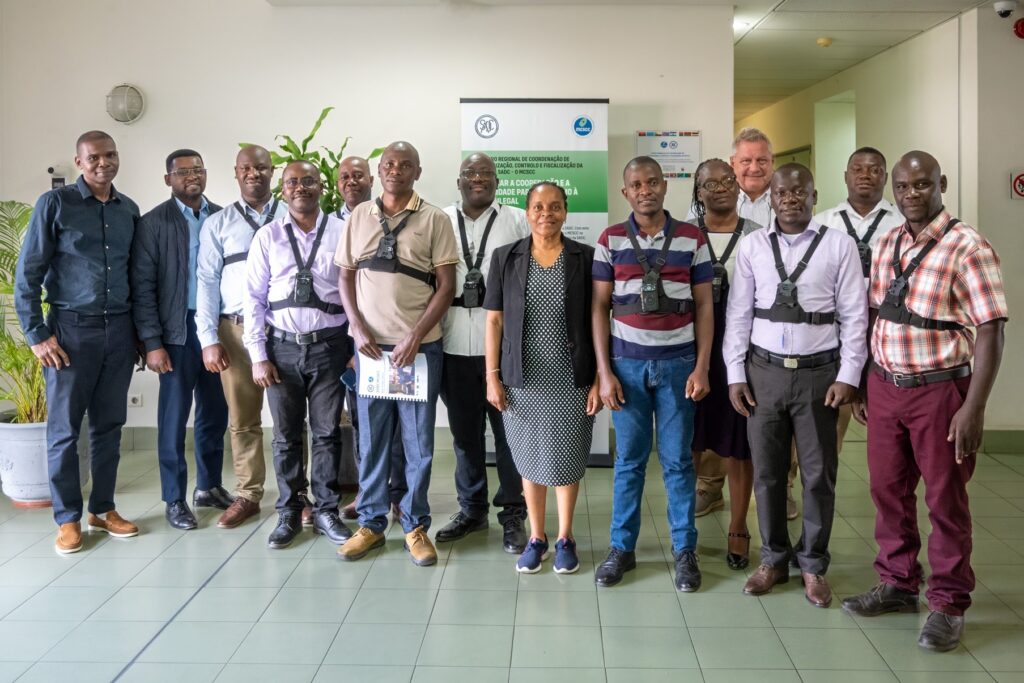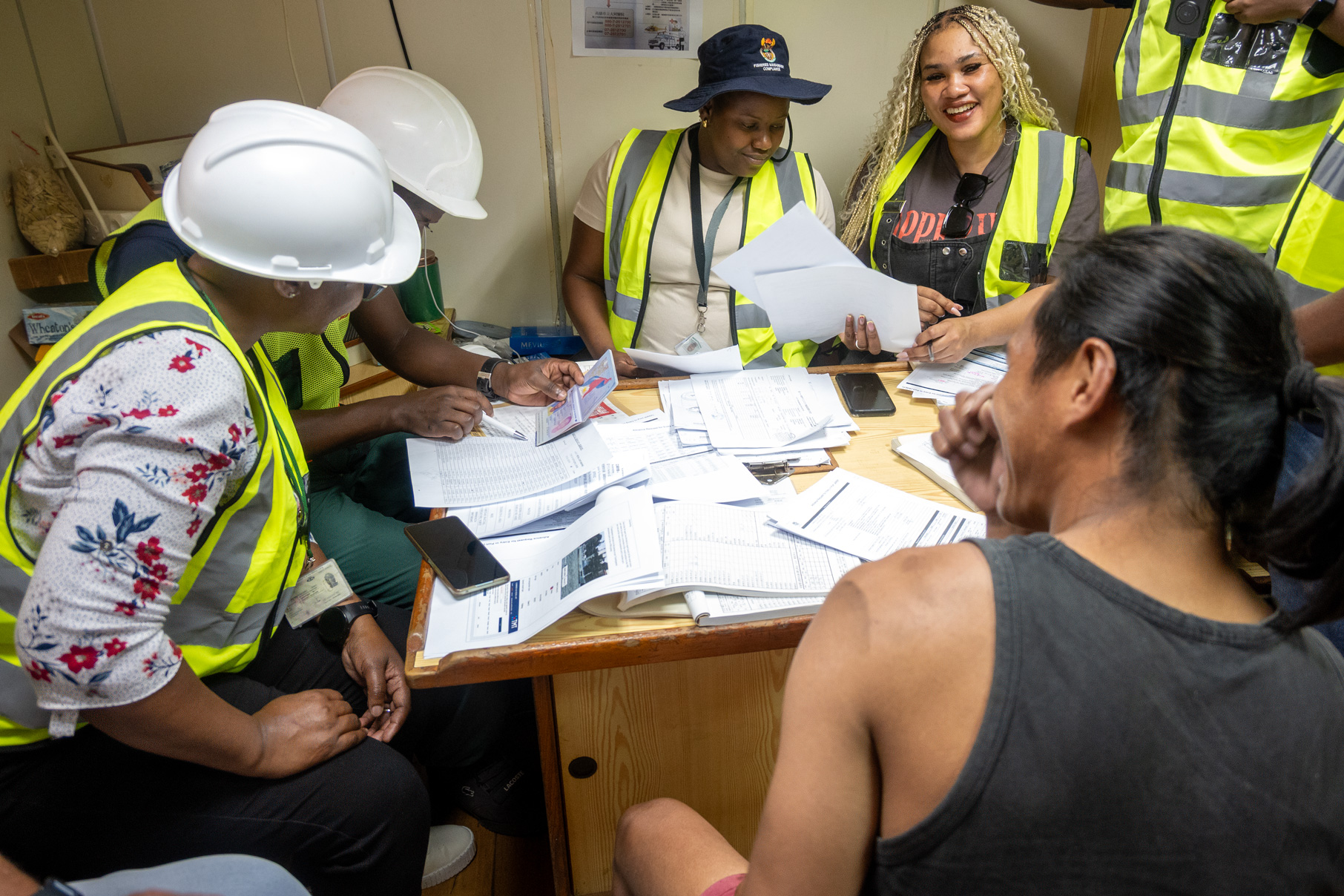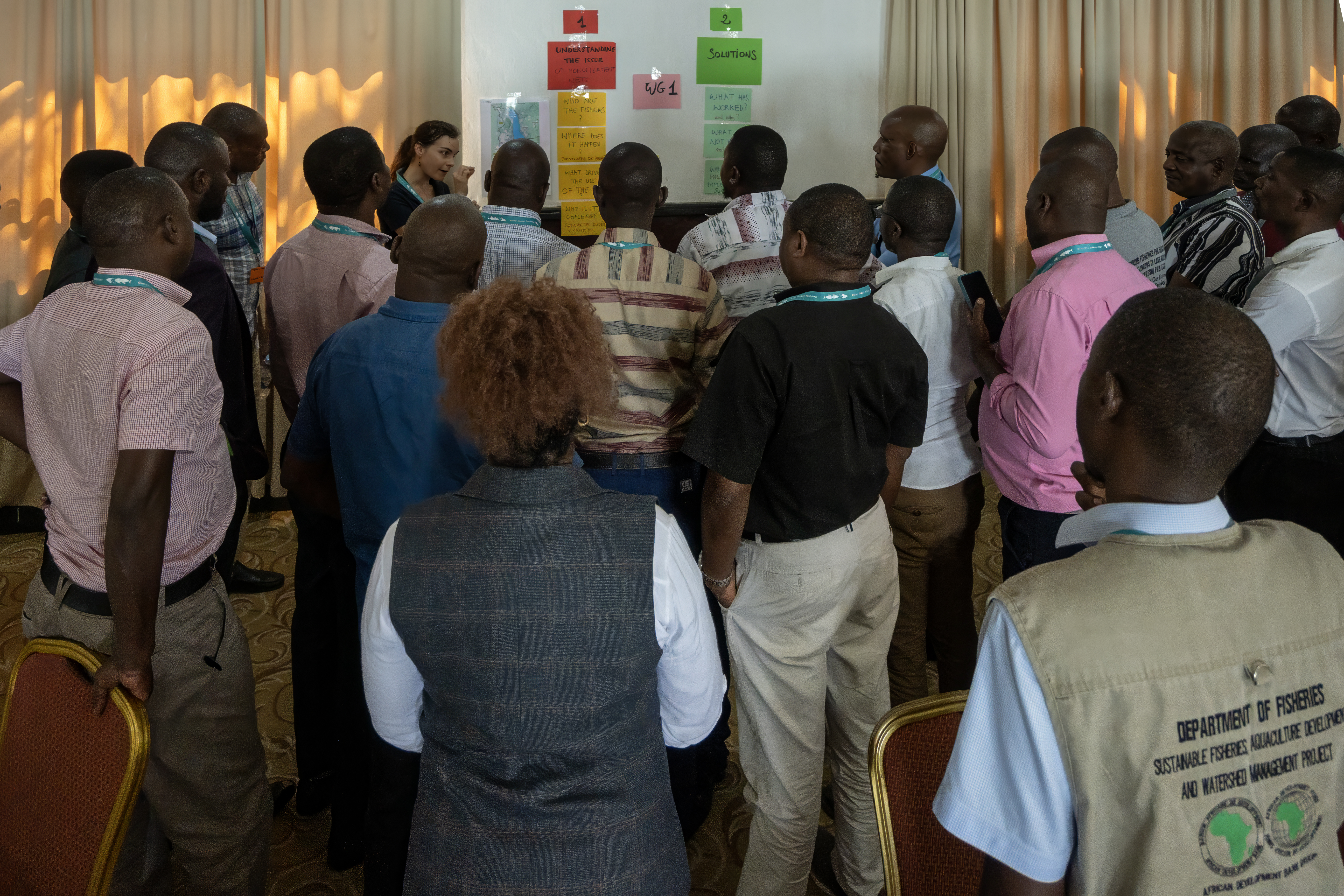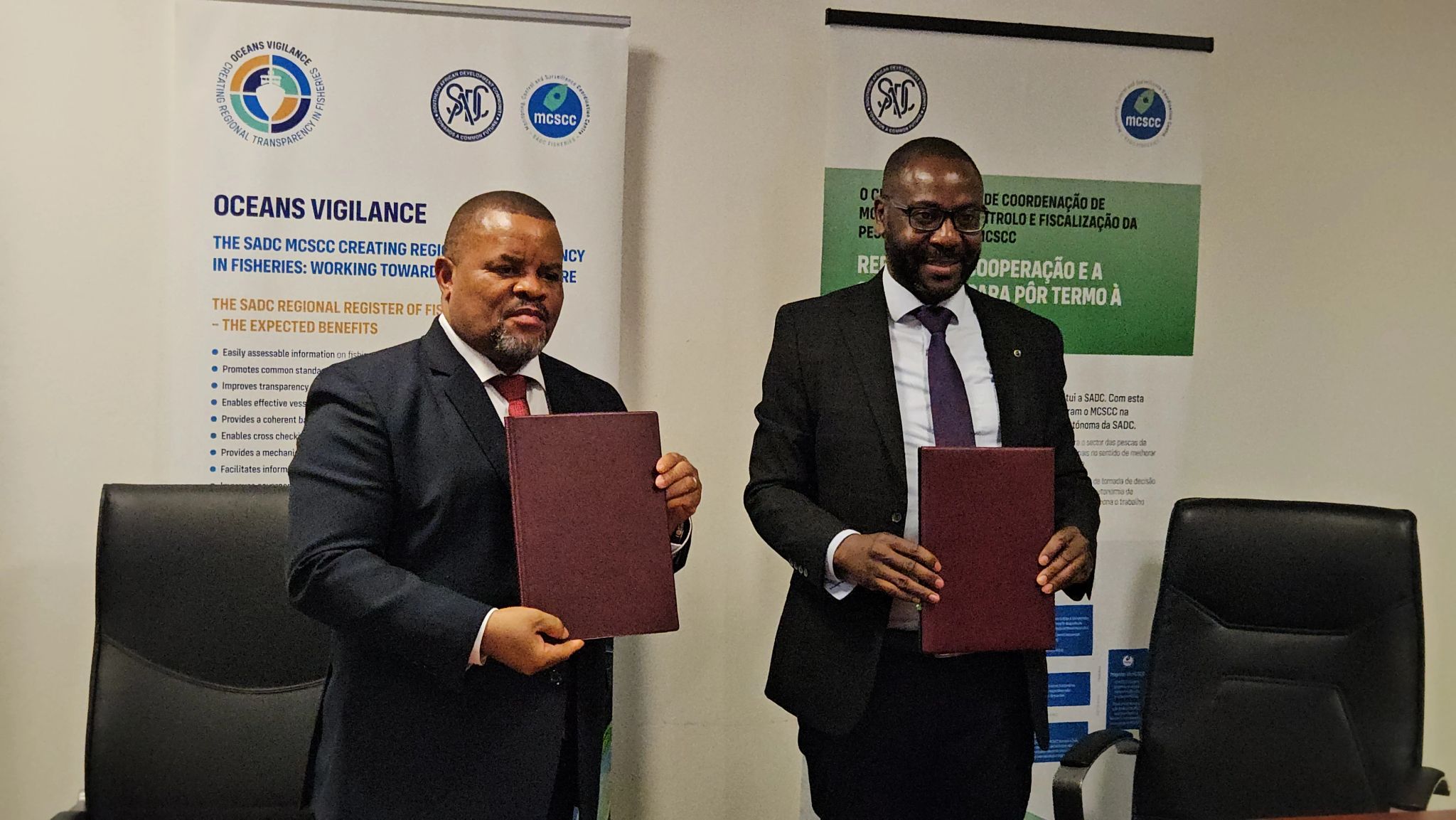MCSCC trains SADC inland fisheries officers in using body-worn cameras for MCS
Maputo, Mozambique – 4-5 September 2025

On 4-5 September 2025 in Maputo, Mozambique, the Interim Project Management Unit (IPMU) of the Monitoring, Control, and Surveillance Coordination Centre (MCSCC) hosted a training on body-worn cameras (BWC) for officers from Malawi, Mozambique, Tanzania, Zambia and Zimbabwe working in inland fisheries. The training was supported by the MCSCC’s technical partner Stop Illegal Fishing (SIF) through an implementation agreement between the Southern African Development Community (SADC) Secretariat and World Wide Fund for nature (WWF) within the framework of the Program for improving fisheries governance and blue economy trade corridors in the SADC region (PROFISHBLUE) project funded by the African Development Bank (AfDB). After successfully piloting, in partnership with SIF, BWC for marine fisheries monitoring, control and surveillance (MCS) in various coastal countries in the SADC region, the MCSCC is now promoting those devices as part of its MCS toolkit, with the aim to strengthen MCS capacities at the national level, whilst advancing regional MCS cooperation through the MCSCC.
The MCSCC is placing high importance on strengthening services provided to inland fisheries, in line with its mandate to govern cooperation in sustainable fisheries management for marine and inland fisheries, as set in the 2017 MCSCC Charter. Through the PROFISHBLUE Project, a first training on MCS in inland fisheries had been organised by the MCSCC in February 2025 in Lilongwe, Malawi with the aim to identify challenges faced by MCS officers responsible for inland fisheries, and to understand how the MCSCC could support countries in addressing them. Amongst those challenges, MCS officers reported widespread use of illegal fishing gears such as monofilament nets, fishing in protected areas, transboundary illegal fishers, and fisher’s hostility towards MCS officers. Corruption at different level, difficulties in recording catch data, lack of critical equipment, and challenges to gather evidence to prosecute cases of IUU fishing had also been highlighted as major MCS challenges.
This second workshop was based on the conclusions and recommendations gathered in Malawi and focussed on introducing BWC to inland fisheries officers as a tool to enhance their national MCS capacity.
The MCSCC’s technical partner SIF first introduced body-worn cameras during the COVID-19 pandemic, which limited the possibility to visit countries in the region to conduct national trainings. This allowed to continue coaching remotely fisheries officers in pilot coastal countries, including Angola, Madagascar, and South Africa, as well as in Ghana, West Africa. The use of the BWC was a success, ensuring continuous support of national officers, while opening a significant number of opportunities for national MCS and regional cooperation through the MCSCC.
At national level, the BWC have the potential to:
- improve transparency and accountability during fisheries enforcement through objective record of situations,
- capture evidence for investigations and training,
- enable remote training and support from experts during on-the-ground operations, and
- foster trust between enforcement officers and fishing communities.
Regionally, BWC can be a precious tool for the MCSCC to fulfil its objectives and functions, including by supporting the delivery of high-standard operational fisheries MCS trainings throughout the region (MCSCC Charter, Article 7), supporting harmonised MCS procedures regionally, and promoting information of fisheries data and information (MCSCC Charter, Article 6). The BWC are being piloted as a MCS tool in line with those commitments and with the “Code for Harmonized Fisheries MCS Data and Information Sharing through the Regional Fisheries MCSCC”, referred to as ‘the Information Code’, which was approved in May 2022, and annexed to the MCSCC Charter.
The Information Code has the objective to “promote the collection, pooling, exchanging and sharing of fisheries data and information between SADC Members States which are party to this Code, through the Regional MCSCC and between the Regional MCSCC Secretariat and relevant RFMO/RFB, or any Non-SADC participating States in accordance with the confidentiality provisions”. The BWC constitute an MCS tool for MCSCC State Parties to help them fulfil their obligation as set in Article 7 of the Information Code to “take all necessary measures to ensure the collection, processing, storage, analyses and dissemination of precise fisheries data and information”.
At the end of the training, each participating country was handed over two BWC by the MCSCC, to be used in inland fisheries MCS operations. As a follow-up to this meeting, participants will establish the national conditions needed for the use of the BWC, identify situations and operations in which BWC could be used, and liaise with the MCSCC to report on next steps of implementation.
It is expected that their experience and feedback will help validate whether BWC as a MCS tool could be extended to the other MCSCC State Parties and become part of standard procedures for MCS in inland and marine fisheries, hence supporting the objective of the MCSCC to harmonise MCS procedures throughout the SADC region.

Follow us on our social media pages


